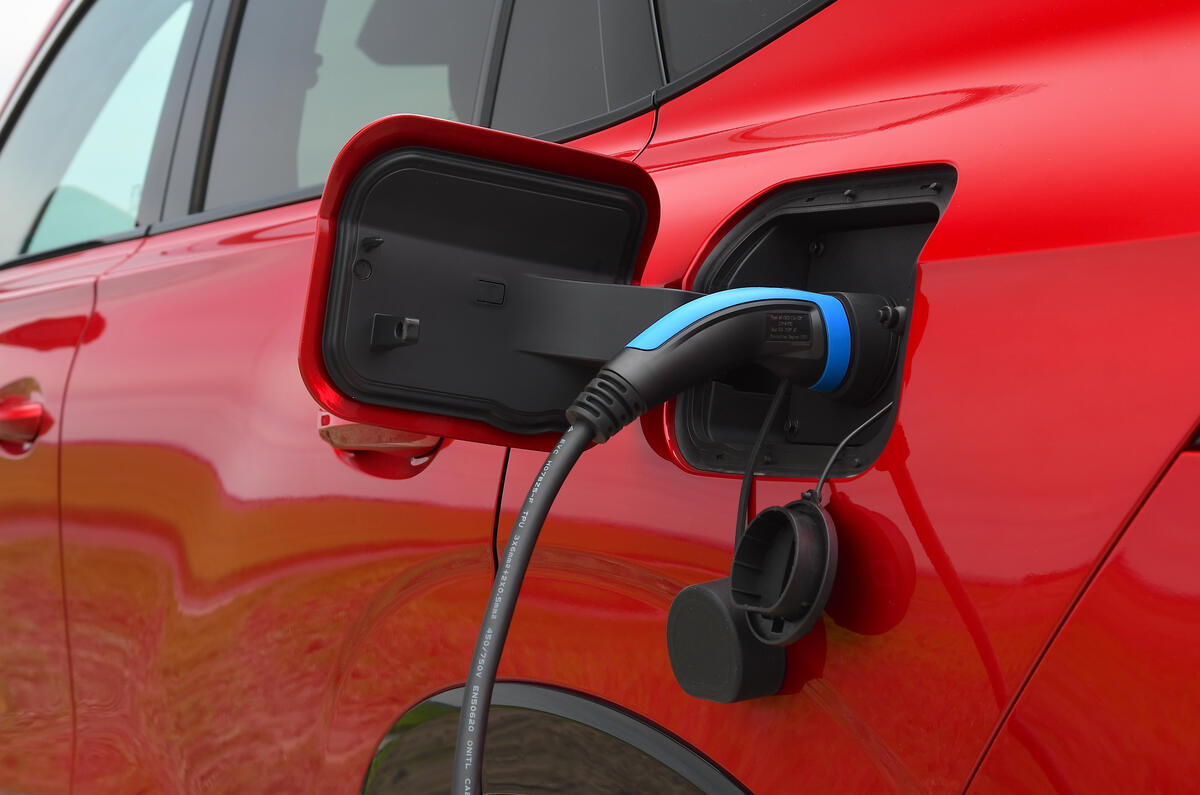Some vehicles are at risk of losing company car tax breaks following the 1 January change to the way plug-in hybrid (PHEV) fuel efficiency and CO2 emissions are calculated.
These reforms arrive after long-standing criticism that the published fuel economy figures of PHEVs fail to reflect real-world performance, which in turn undermines their contribution to cutting manufacturers’ and fleets’ CO2 output.
A PHEV's efficiency is calculated by testing its electric range and then its fuel consumption in hybrid mode. The electric range is used to produce a 'utility factor', a percentage of its total mileage that will be done on battery power.
The longer the range, the lower the car’s CO2 emissions, though this assumes drivers plug PHEVs in, and real-world data gathered by the European Environment Agency suggests this isn’t always happening. Across a sample of 373,552 petrol PHEVs, drivers averaged tailpipe CO2 emissions of 134g/km against a published 38g/km – a 254% gap. Diesel PHEVs fared even worse, averaging 155g/km or 326% more CO2 than the 34g/km brochure average.
The new Euro 6e-bis test standard is designed to close that gap, by adjusting the utility factor to assume a much lower share of electric driving. In turn, PHEVs will need to offer a far longer electric range to get a significant reduction in CO2 emissions.
Euro 6e-bis applies to new models launched from 1 January 2025, and all new car and van registrations 12 months later. Manufacturers have until 31 December 2025 to re-test their entire line-up, which means published CO2 emissions will change through the year.
Increases can be sizeable. The International Council on Clean Transportation (ICCT) says CO2 emissions for a PHEV with a 70km (42-mile) electric range could more than double, from 45g/km to 96g/km.
Leasing company Alphabet has advised fleets to pay close attention, warning that vehicles’ CO2 emissions are set when they are manufactured, so re-testing means some will change between ordering and delivery – especially towards the end of the year.
The ICCT’s sample vehicle would cease to qualify for ultra-low company car tax bands and 100% tax deduction for leased vehicles, because both are capped at 50g/km of CO2. It would also lose the most generous salary sacrifice incentives, which are capped at 75g/km.
Around 80% of new PHEVs are registered to companies, according to the Department for Transport.







Join the debate
Add your comment
How about some tax incentives for individuals? Why can't I offset an electric car against my ridiculously high income taxes just because my employer doesn't run a company car scheme?
At long last. My friend has a PHEV A3, not the worst offender I know. She plugged it in a few times early on in its life, but hasn't bothered at all now for years. Meanwhile she's enjoying the tax benefits whilst using more fuel and putting out more emissions than a standard petrol engined model.
For me, the system for PHEVs should incentivise and reward partnering frugal ICE engines with EV tech. Not V8s.